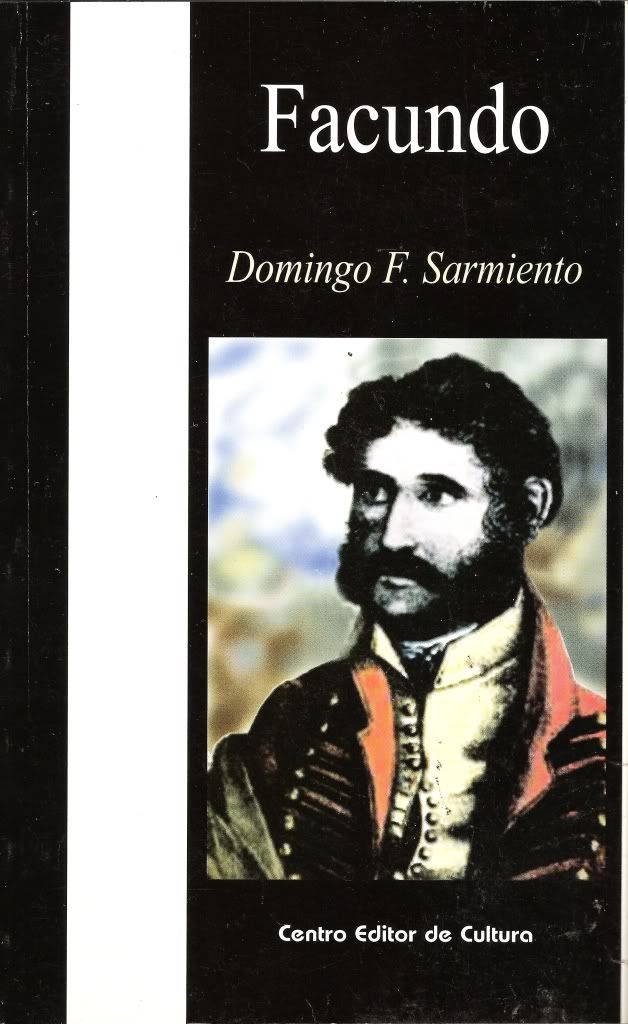 Domingo Sarmiento wrote Facundo while he was in exile in Chile, having had to flee Argentina due to Juan Manuel Rosas, the country's first dictator. Facundo can be read as his attempt to come to grips with the forces that brought his country under dictatorship and sent him to exile.
Domingo Sarmiento wrote Facundo while he was in exile in Chile, having had to flee Argentina due to Juan Manuel Rosas, the country's first dictator. Facundo can be read as his attempt to come to grips with the forces that brought his country under dictatorship and sent him to exile.Facundo is presented as the biography of Facundo Quiroga, a gaucho and fighter in the War of Independence who would go on to serve as one of the most important generals in the civil war which would bring Rosas to power. Sarmiento uses the biography of Quiroga as a basis for a deeper exploration of Argentine politics and society. Even before Quiroga appears, Sarmiento gives a brief account of the geography of Argentina, and how its history led to a divergence between the city of Buenos Aires--cosmopolitan, cultured, with an interest in new political ideas--and the rural provinces, in which violence and corruption had come to dominate. In doing this, Sarmiento lays out the central struggle of Argentina as one between the Civilization of Buenos Aires and the Barbarism of the provincial caudillos, of which he sees Quiroga as an embodiment.
Quiroga makes for a larger than life figure, so there is a certain logic to his centrality (as opposed to Rosas) for Sarmiento. As a young man, Quiroga had a run in with a puma and killed it with a knife, earning the sobriquet "El Tigre de los Llanos" (The Tiger of the Plains). He dropped out of school while still young to pursue a gaucho existence buyt did not really make much of himself until becoming a leader of men during the civil war. Though not a great strategic thinker, his leadership of bands of gauchos turned out to be key in the victory of the Federalist forces under Rosas. Once Rosas is in power, Quiroga shows little interest in government, and ends up being violently assassinated. (Sarmiento alleges Rosas ordered the assassination, though the historical record is unclear.)
Quiroga can be thought of as many things: as novel, biography, history, and an exploration of the forces at work in Argentine history. Sarmiento sees the gaucho and his culture as expressions of the Barbarism which rejects the standards of Civilization. He advocates for the importance of education and the development of commerce in order to allow Argentina to rise to greatness. Though his theory of this struggle between Civilization and Barbarism tends at times towards simplification,(He seems to have a particular fetish for the use of European-style clothing as expression of political sophistication.) the difference between the European-influenced porteños and the insular world of the gauchos does bring insights into Argentina's history. Whatever its flaws, it's a fairly thorough and fascinating portrait of Argentina's internal struggle after independence and one very noteworthy figure in that struggle.



No comments:
Post a Comment